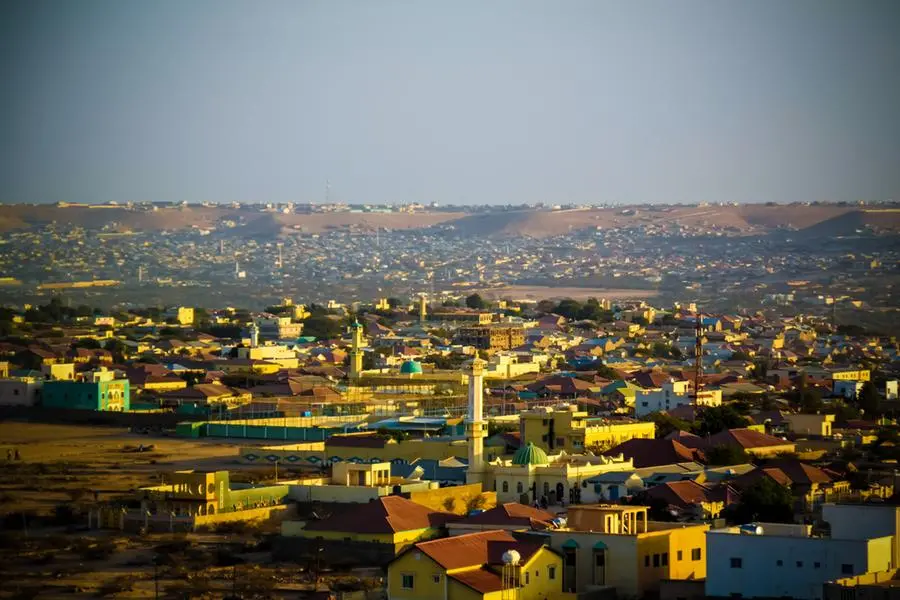PHOTO
Somalia and Türkiye last week signed a new agreement for onshore oil and gas exploration, which Turkish Energy and Natural Resources Minister Alparslan Bayraktar said, “marks a new step that will strengthen our strategic cooperation with Somalia.”“We will begin with seismic studies and move rapidly to detection and production,” Bayraktar said in Ankara.
The deal grants the state-owned Turkish Petroleum Corporation rights to conduct seismic surveys and drilling operations across three blocks covering about 16,000 square kilometres in Somalia.
Oil exploitation was not initially Türkiye’s declared intention when it first arrived in Mogadishu 14 years ago as the effects of drought bit the residents hard.
Since then, Ankara has built the largest diplomatic mission in Africa on Somali soil, set up a military base and now runs the main airport and the seaport in Mogadishu.
Read: Somali delegation in Ethiopia to cement Ankara dealThere are Turkish prints on the Somali education, where hundreds of scholarships are dished out to Somalis to study in Turkish learning institutions, and the main security brigades in the federal government have also been trained by Turkish institutions.
On oil, officials have said it proves that true partnerships don’t always start with business, but with humanity. Somali Petroleum and Mineral Resources minister Dahir Shire Mohamed labelled the accord a “historic day” for Somalia’s bilateral energy cooperation.“This agreement opens a new chapter for Somalia’s natural wealth,” Mohamed said, further indicating that effective exploration could strengthen ties with Türkiye, labelling as a key ally.
Further details about the locations of the inland blocks were not disclosed. But the announcement came on the same week Türkiye hosted its annual Antalya Diplomatic Forum, bringing together world leaders to discuss “Reclaiming diplomacy in a fragmented world.”Since 2002, Türkiye has increased its diplomatic presence in Africa, raising its embassies from 12 to 44 in 2022. In 2008, it became an observer state of the African Union, using that to elevate its business and political ties with the continent. It now runs a forum called the Africa Partnership Policy with Africa.
At the Antalya Forum, various African leaders attended, including Sudan’s military leader Abdel Fattah al-Burhan, who met with Turkish Recep Erdoğan.
Previously, Türkiye had tried to mediate in the conflict in Sudan between the Sudanese Armed Forces and the Rapid Support Forces, in vain.
"When we talk about peacebuilding, we must acknowledge the importance of local ownership and coordination,” said Omar Alieu Touray, president of the Commission of the Economic Community of West African States.“Peace is not just about intervention; it’s about collaboration with the region itself,” he said at the Antalya.
Musalia Mudavadi, Kenya’s Prime Cabinet Secretary and Cabinet Secretary for Foreign Affairs, argued Türkiye’s role should complement stronger African institutions, not replace them.“Africans want to engage meaningfully amongst themselves and also with the rest of the world.“We must be very careful that we do not create a new scramble for Africa, that can generate more problems like in the past. It is essential that the institutions created by the African nations are respected,” said Mudavadi on a panel discussion about the Horn of Africa and the risks and opportunities in the region.“Resources are scarce and in particular resources channelled to conflict interventions are so limited even from the international community. Africa should therefore mainstream its efforts through recognised institutions that have structures for us to have a more coordinated approach to conflict resolution.”Some African leaders though agreed with reality: That warring parties tend to agree to mediations offered by parties abroad because they have a bigger leverage, or that African institutions that would have done so are too weak or carry little influence.“As African people, we need to establish strong systems of good governance. The world is watching Africa from the outside, observing what’s happening,” said Olushegun Adjadi Bakari, Béninois Foreign Minister.“If we fail to present a positive image, it becomes extremely difficult for our voices to be heard on the global stage,” he added on discussions about diplomacy in geopolitics.
In the Horn, Türkiye has, meanwhile, placed its mark on nearly every country. Ankara had deployed its Oruç Reis, a seismic vessel that has been conducting 3D surveys in Somali waters since October 2024. It has engaged security support for Kenya and Ethiopia, including sale of drones and has reportedly backed Sudan’s military government to re-establish authority in Khartoum.
© Copyright 2022 Nation Media Group. All Rights Reserved. Provided by SyndiGate Media Inc. (Syndigate.info).





















